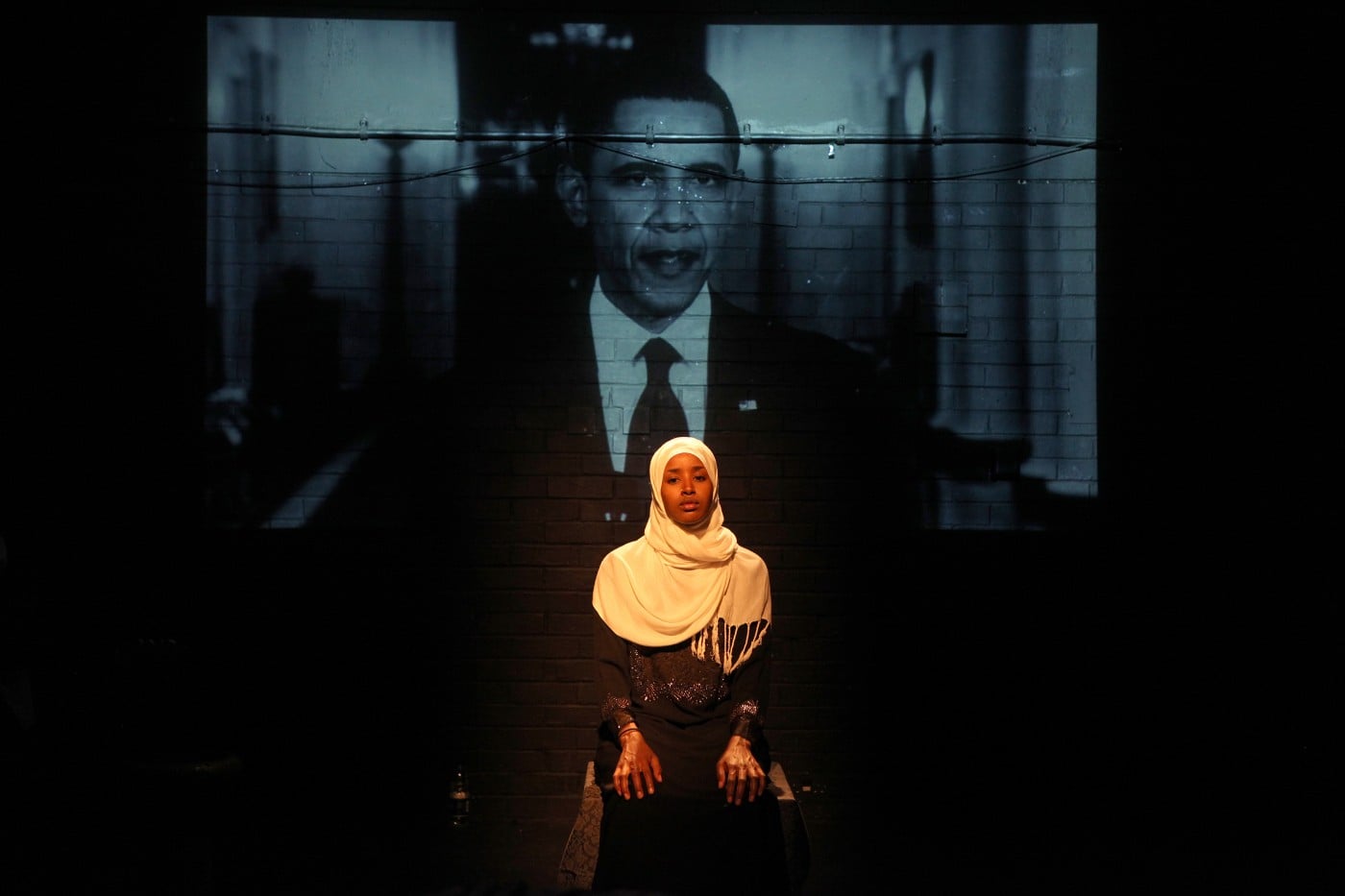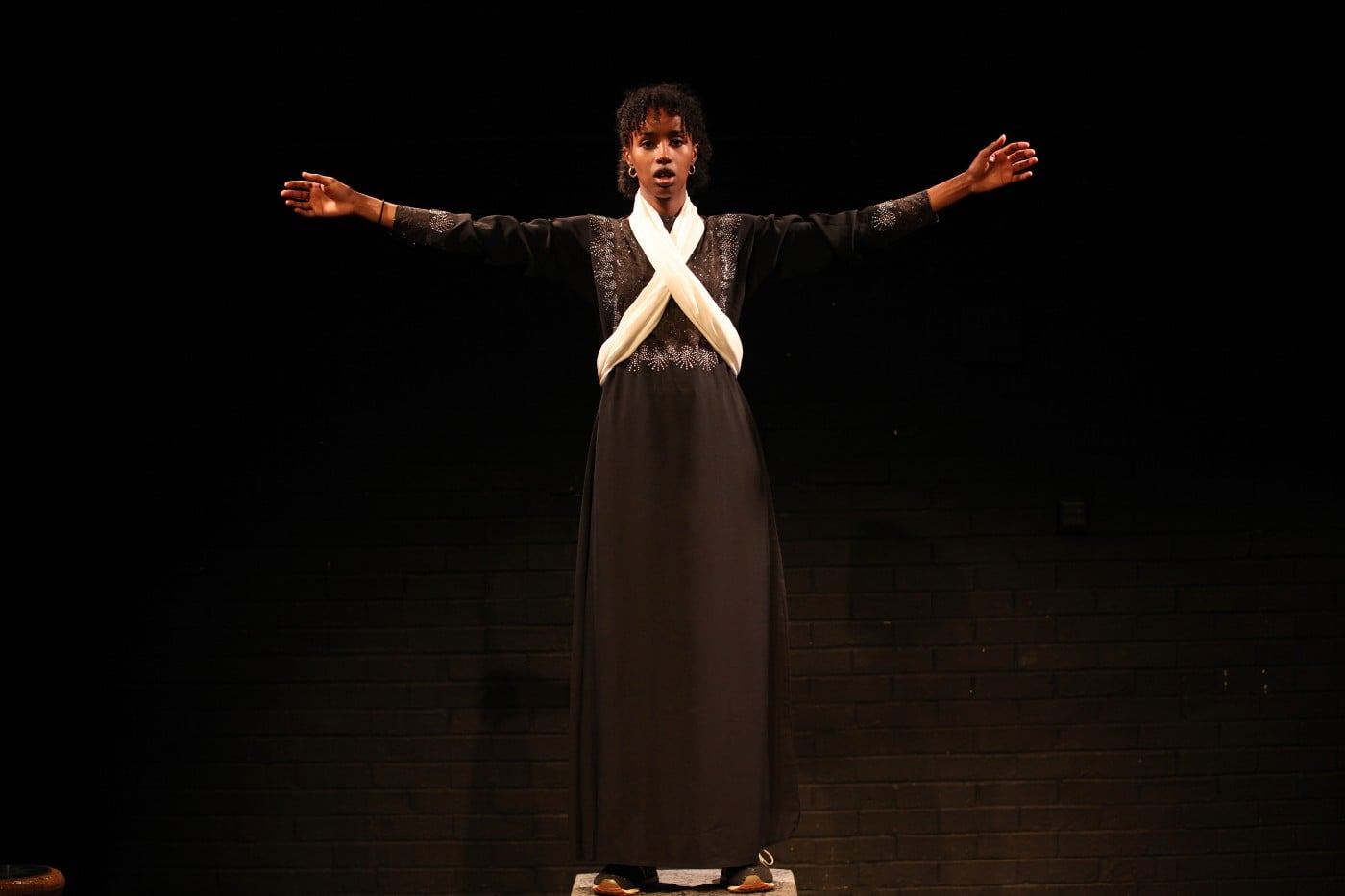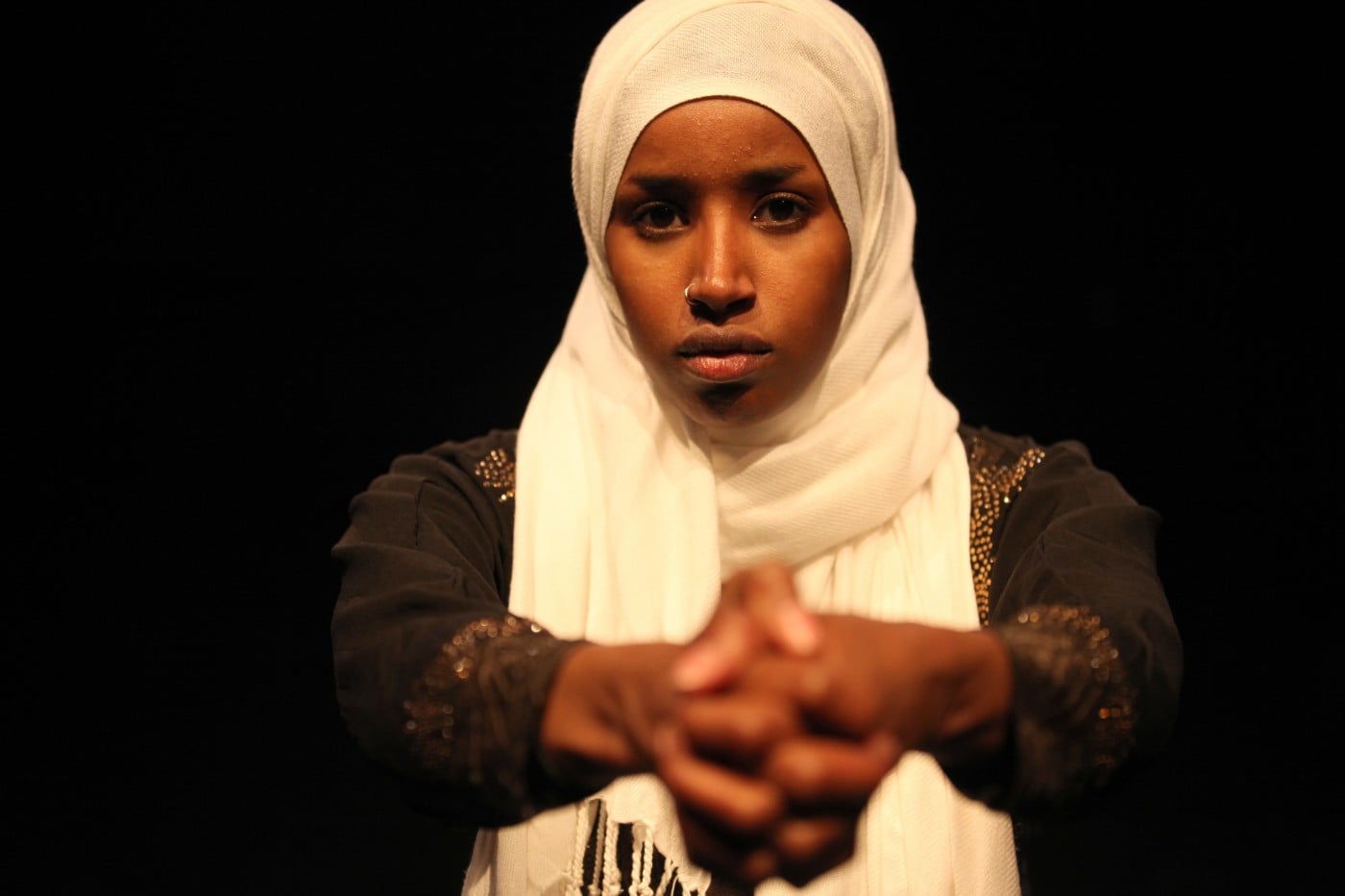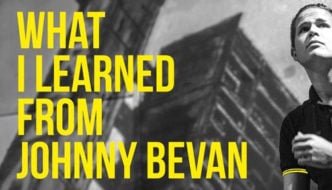
Once the gateway to the British Empire—a bookend for deplorable voyages and ill-gotten riches—it is fitting that Liverpool should provide the backdrop for a tale of triumph over colonialism.
The Crows Plucked Your Sinews, performed at The Unity Theatre as part of Liverpool Arab Arts Festival (with events until July 16th), follows the story of two Somali women found in opposing ages. The first, Suuban, resides in a Woolwich council house in 2011, the other, Suuban’s great-grandmother, is a Dervish warrior fighting in the ranks of Sayid Muhammed Abdullah ‘Mad Mullah’ Hassan in 1913. Both women are engaging in a similar battle against oppression at the hands of the British. One dodges colonial bullets, the other takes cover from sharpshooting soundbites and loaded rhetoric.
Written and directed by Hassan Mahamdallie, the stripped back production relies on the intimacy of spoken world to illuminate the conjoining narratives of two contemporary conflicts. Aisha Mohammed, the sole actor on stage throughout the performance, switches between both roles, linguistically dancing from English to native Somalian tongue with a continual flow throughout the 70 minute performance. A hijab swiftly transformed into warrior dressings announces the change of character.

The performance begins with Suuban delivering a pensive monologue under a sole spotlight before a singular chair. Applying wit and lyricism to soften the harsh reality, she talks of her and the Somali people’s ‘invisibleness’ within 21st century British society. “We are the true nomads”, she explains. Later, we’re introduced to characters within her home (all voiced by Mohammed): her drug dealing brother, dispassionate mother and dementia suffering grandmother, who languishes on the top floor of her house speaking as if to ghosts, while regularly filling up a spit jar due to medicinal intake.
One evening, after tuning into the news and absorbing the reports, Suuban is jolted into detailing the state of her ancestor’s homeland – a country regarded as a failed nation, ravaged by civil war since the 1990s. A situation stoked by British endeavours in the horn of Africa at the turn of the 20th century.
From one uncelebrated conflict to its opposite, a dogmatic Barrack Obama beams onto the back of the stage to announce the discovery, killing, and disposal of Osama Bin Laden. The words “no American’s were harmed” repeat from Obama’s enlarged mouth; Suuban ponders the “USA” chants and studies the presidentially approved murder before disclosing how she feels sorry for the once orchestrator of terror. The scene evokes a feeling of awakening; that behind the imperious speeches of western leaders, there is always unsung victims of such spoken aggression – especially those who happen to resemble natives of the Arab world. Being left to solely rely on the innate strength sewn into their culture is not enough.

Assuming the role of the great-grandmother, the Dervish warrior battling against the British army of Richard Corfield, aka Koofil, Mohammed recalls tales of slaying the unfortunate British soldier ‘Tommy’ – an act eloquently aided by reading aloud heartfelt letters exchanged between him and his mother, which are also projected on stage. A closing rendition of Koofil, written by Sayid in commemoration of victory over Corfield in The Battle of Dul Madoba, closes the performance as Mohammed commands the lines: ‘”The Dervish are like the advancing thunderbolts / of a storm, rumbling and roaring.”
As the centrepiece, Aisha Mohammed is captivating from her first line to the last. Both incarnations of her character possess the same vocal prowess, subtly underlining that both women are fearsome warriors in their own respect. The play itself is direct, and doesn’t hide behind corners within its narrative. As does the bold lyricism and poetry, with each line generously fleshing out the minimalist set design.
Writer Mahamdallie is right to question the way in which the US carried out the killing of Bin Laden, and neatly juxtaposes Obama’s authoritarian announcement with Sayid’s emboldened poem, Koofil. From white British nationals, to those with Somalian heritage, or even people who find themselves unmoved by pictures of the Mediterranean refugee crisis, this performance will leave you emotively challenged, albeit with an energy to challenge those who command our armed forces with little regard for life, or the consciences of those closer to home.
The great structures birthed by Britain’s colonial wealth often cast a shadow on the suffering endured to enable their creation. The Crows Plucked Your Sinews uses a beautifully crafted narrative to deliver a stark history lesson. One that delicately shows how Britain’s past brushed colonial suffering into the gutter beside the foundations of its celebrated empire – of which the effects can still be felt in present day.
Upon leaving The Unity theatre, the peripherals are filled with stunning Georgian town houses lining the street, with a short walk into the city centre accompanied by further stately architecture dating back to the 18th and 19th century. Perhaps we ought not to rely on the powers of theatre to be reminded of Britain’s conflicted past.
The Crows Plucked Your Sinews was performed at Unity Theatre as part of Liverpool Arab Arts Festival which runs until July 16th.
Filed under: Theatre & Dance
Tagged with: Liverpool Arab Arts Festival, The Crows Plucked Your Sinews, Unity Theatre



Comments